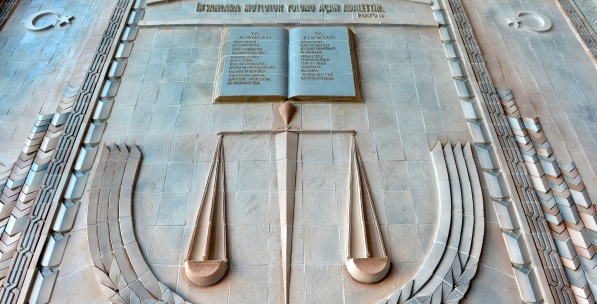What is the nature of the process or the crisis that we have been going through? For instance, what kind of a problem was the so-called 367 crisis (the number of ‘yes’ votes required in the parliament to select a president) in the run-up to the presidential election in 2007? How did we overcome that crisis? Answers to these questions are not very complex. Just like that crisis was solved politically, this crisis at our door today will be solved politically as well. Seeking our answers outside politics will take us nowhere but chaos.
This is because a component, on the source and function of which we cannot agree, cannot be the final solution itself, but only an instrument for solution. Politics maintains its position of being the final resort in crises we experience, as it resolves the issue of least common denominator by the “majority formula,” thereby ending the discussions over legitimacy.
For those who are not at peace with the “majority formula”, we cannot help but wait to hear from them a new system of values regarding the imaginary order that the secular world is trying to establish for the last century and that Turkey shares. When things look that clear to us, some still suggest that it is the “law” that will solve our problems even though problems themselves stem from the law itself.
This advice is based on some assumptions. This advice takes as its reference the law enforcement in mature democracies in the West but only by taking into parenthesis their system of values and their historical context.
Although political context and history of our problems today are totally different from those of the West, our residents in the liberal fantasy land preach to us that “a political issue should be resolved by the law alone;” they do not even say ‘by using the law’, which is a bit more understandable. Some even go further than giving the law an impossible mission to resolve a political issue and advocate that “the law must execute politics.”
What makes them so audacious? To a great extent, it comes from a worn-out cliché, “the supremacy of law,” legitimacy and meaning of which are so obscure.
We do not know how and why the law reigns supreme. This sacred principle is internalized without any questioning by almost everyone and used to replace “order within law” and its meaning too is hazy. Besides, everyone knows that the “supremacy of law” is held equal to the “supremacy of the Judiciary or judicial institutions” in our current quality of democracy.
We call a body of rules regulating relations between individuals and the State, or among individuals, the law.
Politics, which takes its legitimacy from people’s choices, takes into account different matters and preferences and makes the law. Thus, by the law we are talking about an area that can be changed or abolished by politics. This makes the law a passive sphere, not an active one in terms of its emergence. Nevertheless, it should not be expected from law to have a function beyond and above being a common agreement on the script of the order.
What happens if this function threatens the area, politics, which creates it?
This is the question of the crisis that we are going through today. Where should we look for the answer to solve this crisis?
POPULAR WILL VS NATIONAL WILL
The plotters of the 1960 military coup d’état asserted that the “popular will,” believed to emerge from the elected, is in conflict with the “national will,” meaning the willpower of past, present and future citizens of this country.
The solution they found was the supervision of the popular will by the national will. They formulized the national will as a willpower t



